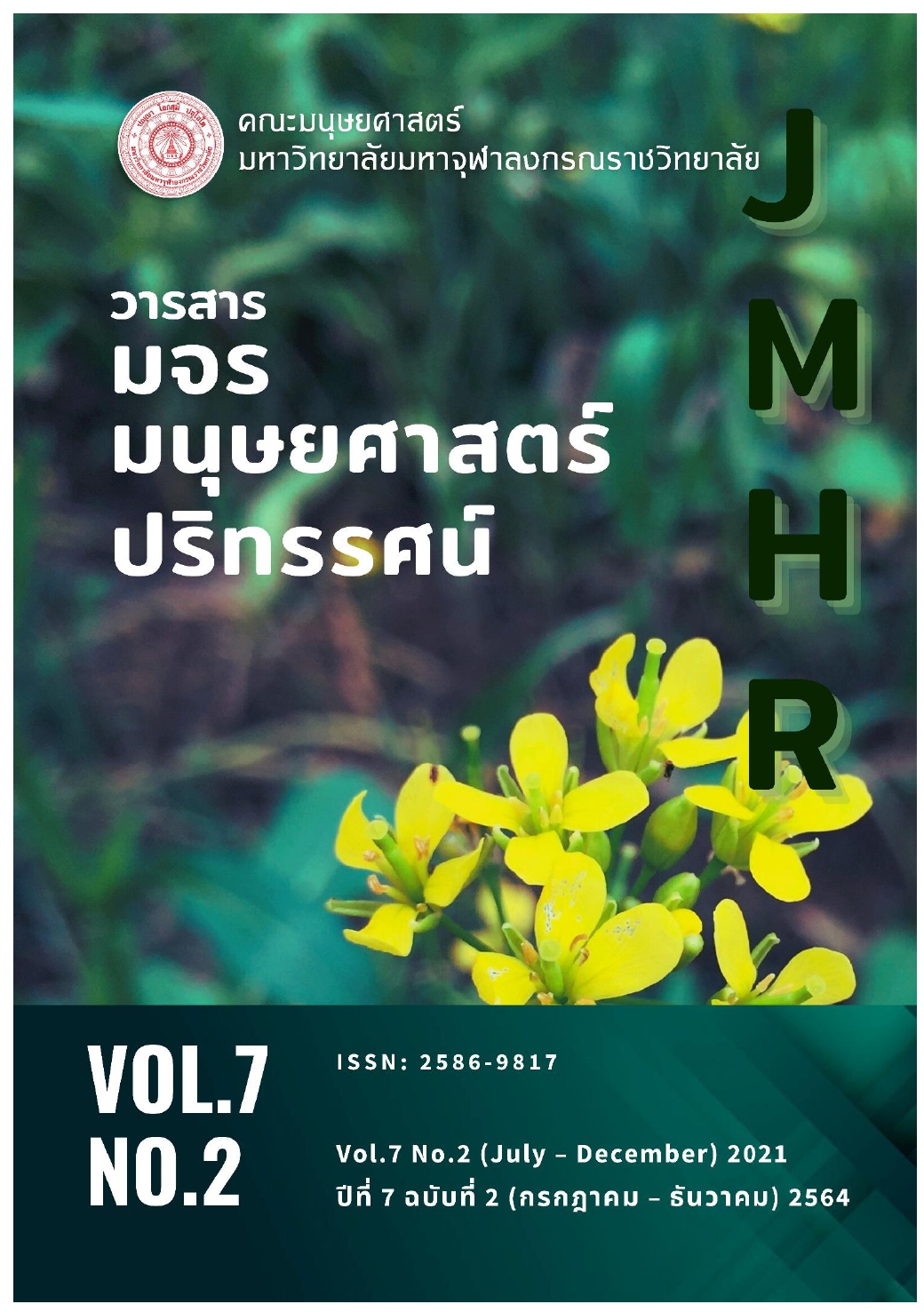สิทธิและเสรีภาพทางการเมือง : วิเคราะห์ตามแนวพุทธศาสตร์
คำสำคัญ:
สิทธิและเสรีภาพ, การเมือง, พุทธศาสตร์บทคัดย่อ
การวิจัยนี้มีวัตถุประสงค์ 1. เพื่อศึกษาวิเคราะห์สิทธิและเสรีภาพทางการเมืองตามแนวคิดทั่วไป ๒) เพื่อศึกษาวิเคราะห์สิทธิและเสรีภาพทางการเมืองตามแนวพุทธศาสตร์ การดำเนินการวิจัยในครั้งนี้เป็นการวิจัยเชิงคุณภาพ โดยทำการวิเคราะห์ข้อมูลที่ได้จากการศึกษาเอกสาร เกี่ยวกับสิทธิและเสรีภาพทางการเมืองวิเคราะห์ตามแนวพุทธศาสตร์ ที่ปรากฏในคัมภีร์พระไตรปิฎก อรรถกถา วรรณกรรมทางพระพุทธศาสนา รวมทั้งวิเคราะห์ข้อมูลที่ได้จากการสัมภาษณ์เชิงลึก ผลการวิจัยพบว่า สิทธิและเสรีภาพทางการเมืองตามแนวคิดทั่วไป ประกอบด้วยกฎหมายที่เป็นกฎเกณฑ์ที่ผู้มีอำนาจของรัฐตราขึ้นเพื่อใช้บังคับบุคคลให้ปฏิบัติตาม เพื่อกำหนดระเบียบแห่งความสัมพันธ์ระหว่างบุคคลหรือระหว่างบุคคลกับรัฐ และสิทธิและเสรีภาพทางการเมืองตามแนวพุทธศาสตร์ ประกอบด้วย พระพุทธเจ้าเป็นศีลธรรมตามบทบัญญัติทางศาสนาในรูปวัฒนธรรม ศีลธรรม ระเบียบประเพณี คือ ศีล สมาธิ ปัญญา วิมุตติ และวิมุตติญาณทัสสนะ ตามแนวของพุทธธรรมเป็นสันติภาพคือความมีสันติ ความสงบ เพื่อใช้ในการบริหารประเทศ ความยุติธรรมเป็นความเที่ยงธรรม ความชอบธรรม และความชอบด้วยเหตุผลของบุคคลหรือบุคคลกับรัฐ
เอกสารอ้างอิง
เกรียงไกร เจริญธนาวัฒน์. (2556). หลักพื้นฐานกฎหมายมหาชน. (พิมพ์ครั้งที่ 2). กรุงเทพฯ : วิญญูชน
ทิพภานิดา ปาลกะวงศ์. (2538). ความชอบธรรมของศาลรัฐธรรมนูญในระบบการเมืองไทย (ดุษฎีนิพนธ์สาขาวิชาการเมือง คณะรัฐศาสตร์). มหาวิทยาลัยรามคำแหง. กรุงเทพฯ.
ปรีชา ช้างขวัญยืน. (2538). ปรัชญาแห่งอุดมการณ์ทางการเมือง. กรุงเทพฯ: โรงพิมพ์จุฬาลงกรณ์มหาวิทยาลัย.
ไพบูลย์ สุขเจตนี. การเมืองการปกครองตามแนวพระพุทธศาสนา. วารสารวิจยวิชาการ, 2(2),163-276.
พระพรหมบัณฑิต (ประยูร ธมฺมจิตฺโต). (2557). ธรรมราชา. กรุงเทพมหานคร: มหาจุฬาลงกรณราชวิทยาลัย,
พุทธทาสภิกขุ. (2536). ธรรมโฆษณ์ ชุด สันติภาพโลก. กรุงเทพมหานคร : ธรรมสภา.
มหาจุฬาลงกรณราชวิทยาลัย.พระไตรปิฎกภาษาไทย ฉบับมหาจุฬาลงกรณราชวิทยาลัย. (2539). กรุงเทพมหานคร: โรงพิมพ์มหาจุฬาลงกรณราชวิทยาลัย.
มหาตมะ คานธี. (2550). วจนะของมหาตมะ คานธี [Mahatma Gandhi] (จำนงค์ อดิวัฒนสิทธิ์, ผู้แปลและเรียบเรียง). กรุงเทพฯ: สุขภาพใจ. (ค.ศ.1869-1948).
ศุภชัย ศุภผล . (2553). แนวคิดเรื่องความยุติธรรมของ ฌอง ฌากส์ รุสโซ. กรุงเทพฯ: จุฬาลงกรณ์มหาวิทยาลัย.
สมเด็จพุทธโฆษาจารย์ (ป.อ. ปยุตฺโต). (2559). พจนานุกรมพุทธศาสตร์ ฉบับประมวลธรรม (พิมพ์ครั้งที่ 38). กรุงเทพมหานคร: สำนักพิมพ์ผลิธัมม์.
Denise, T. C., White, N. & Peterfreund, S. P. (1992). Great Traditions in Ethics. Califonia: Wadsworth Publishing.
Thomas Hobbes. Leviathan: Or the Matter. (1976). Form and Power of a Commonwealth Ecclesiastical and Civil.edited by Michael Oakeshott with an introduction by Richard s. Peters. New York: Collier Books.






